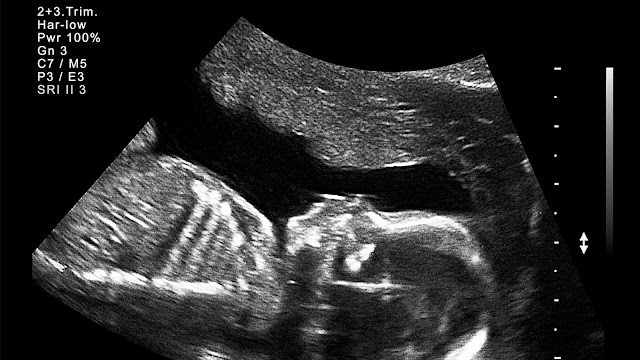Food safety is always a pressing concern, but certain bacteria pose a greater risk to vulnerable populations. Among them, Listeria monocytogenes—commonly known as Listeria—has garnered attention for its ability to survive in cold environments and contaminate foods that many of us consume regularly. In recent years, Listeria outbreaks, particularly in deli meats, have become a significant public health concern, leading to hospitalizations and fatalities.
This blog will delve into what makes Listeria outbreaks in deli meat so dangerous, the health risks associated with it, and how you can protect yourself from becoming a victim of this stealthy bacterium.
The Deli Meat Dilemma: Why is Listeria a Concern?
Deli meats—also known as cold cuts, lunch meats, or sliced meats—are a convenient and popular food choice. Whether it's for sandwiches, salads, or charcuterie boards, these ready-to-eat meats are a staple in many households. However, they have become a significant vehicle for Listeria contamination for several reasons:
1.Cold Storage Doesn't Stop Listeria: Unlike most bacteria, Listeria can grow at low temperatures. Even when deli meats are stored in refrigerators, they can become contaminated. This makes cold cuts particularly dangerous for people who consume them without further cooking, as heat kills Listeria.
2. Cross-Contamination: In deli counters or meat processing plants, cross-contamination can occur if the same equipment (such as slicers or cutting boards) is used for both raw and cooked meats without proper sanitation. This allows Listeria to spread from one product to another.
3. Lengthy Shelf Life: Many deli meats are stored for extended periods before being consumed. The longer these products sit in a refrigerator, the more time Listeria has to multiply, increasing the risk of infection.
4. Ready-to-Eat Nature: Unlike meats that are typically cooked before consumption, deli meats are often eaten directly from the package. This increases the risk of Listeria exposure since cooking at high temperatures is the only sure way to kill the bacteria.
Recent Listeria Outbreaks in Deli Meats
In the past decade, multiple Listeria outbreaks linked to deli meats have made headlines. These outbreaks often lead to widespread recalls, hospitalizations, and, in some cases, fatalities. Here are a few notable instances:
1. 2020 Deli Meat Outbreak: In 2020, a multistate outbreak of listeriosis was linked to deli meats, resulting in dozens of hospitalizations and several deaths. The Centers for Disease Control and Prevention (CDC) advised at-risk individuals, including pregnant women and older adults, to avoid eating prepackaged deli meats unless they were heated to an internal temperature of 165°F.
2. 2019 Canada Deli Meat Outbreak: In 2019, Canada experienced a Listeria outbreak linked to contaminated deli meats, leading to several illnesses and a national recall of the affected products. This outbreak prompted new regulations around food safety procedures in deli processing facilities.
3. 2011 Listeria Outbreak in Cantaloupe and Deli Meats: While most remembered for being linked to cantaloupes, the 2011 outbreak also highlighted the risk in deli meats. This outbreak led to one of the deadliest listeriosis events in U.S. history, with over 30 deaths.
These outbreaks underscore the severity of the issue and the importance of maintaining stringent food safety standards in the production and handling of deli meats.
Who is Most at Risk?
Certain populations are more vulnerable to severe outcomes from Listeria infections:
- Pregnant Women: Listeria can pass from mother to fetus, potentially leading to miscarriage, stillbirth, or severe illness in newborns. Pregnant women are 10 times more likely to get listeriosis than the general population.
- Newborns and Infants: Newborns infected with Listeria from their mothers can develop life-threatening complications such as sepsis and meningitis.
- Older Adults: Individuals over 65 are more likely to develop serious infections due to weakened immune systems.
- People with Weakened Immune Systems: Those with conditions like HIV/AIDS, cancer, diabetes, or those undergoing treatments that suppress the immune system are at higher risk for severe complications from listeriosis.
Symptoms of Listeria Infection
Symptoms of listeriosis can vary depending on the individual's health. In healthy adults, the symptoms are often mild and may include:
- Fever
- Muscle aches
- Nausea or diarrhea
However, for those in high-risk groups, the infection can spread to the bloodstream and central nervous system, leading to more severe symptoms like:
- Headache
- Stiff neck
- Confusion
- Loss of balance
- Convulsions
In pregnant women, the symptoms may be mild, but the risks to the fetus are grave, making early detection and treatment crucial.
How Can You Protect Yourself?
Given the risk of *Listeria* in deli meats, there are several steps you can take to protect yourself and your loved ones:
1. Avoid Deli Meats During Pregnancy: Pregnant women should avoid deli meats or ensure that they are heated until steaming hot before consumption. This includes pre-packaged lunch meats, hot dogs, and deli-sliced meats.
2. Store Deli Meats Properly: Refrigerate deli meats at 40°F (4°C) or lower. Always adhere to the expiration dates on the package, and consume deli meats as soon as possible after purchase.
3. Use Proper Food Handling Practices: Wash your hands, cutting boards, and utensils thoroughly after handling deli meats. Avoid using the same utensils or equipment for raw and cooked foods without proper cleaning.
4. Follow Recalls: Stay informed about food recalls related to Listeria. If a product you own is recalled, dispose of it immediately to prevent infection.
5. Clean Refrigerators Regularly: Since Listeria can grow in cold environments, it’s essential to clean your refrigerator often, especially the shelves and drawers where deli meats are stored.
6. High-Risk Groups Should Avoid Cold Cuts: If you're part of a high-risk group—pregnant, elderly, or immunocompromised—it's best to avoid deli meats altogether unless they are cooked to an internal temperature of 165°F.
What to Do If You Suspect a Listeria Infection
If you believe you've consumed contaminated deli meats and experience symptoms like fever, muscle aches, or gastrointestinal issues, seek medical attention promptly, especially if you're in a high-risk category. Early diagnosis and antibiotic treatment can be lifesaving, especially when Listeria has spread to the bloodstream or central nervous system.
Conclusion
While deli meats are a convenient and popular food choice, they also carry a significant risk of Listeria contamination, especially for vulnerable populations. The cold environment in which deli meats are stored makes them an ideal breeding ground for this deadly bacterium. Outbreaks in deli meats have led to severe illnesses and fatalities, highlighting the importance of food safety, particularly for high-risk groups. By understanding the dangers and taking appropriate precautions, you can reduce your risk of infection and ensure that your meals are not just tasty, but safe.
Stay vigilant, practice good hygiene, and always heat deli meats thoroughly to protect yourself and your loved ones from this hidden health hazard.



.jpeg)
.jpeg)




.jpeg)
.jpeg)

0 Comments